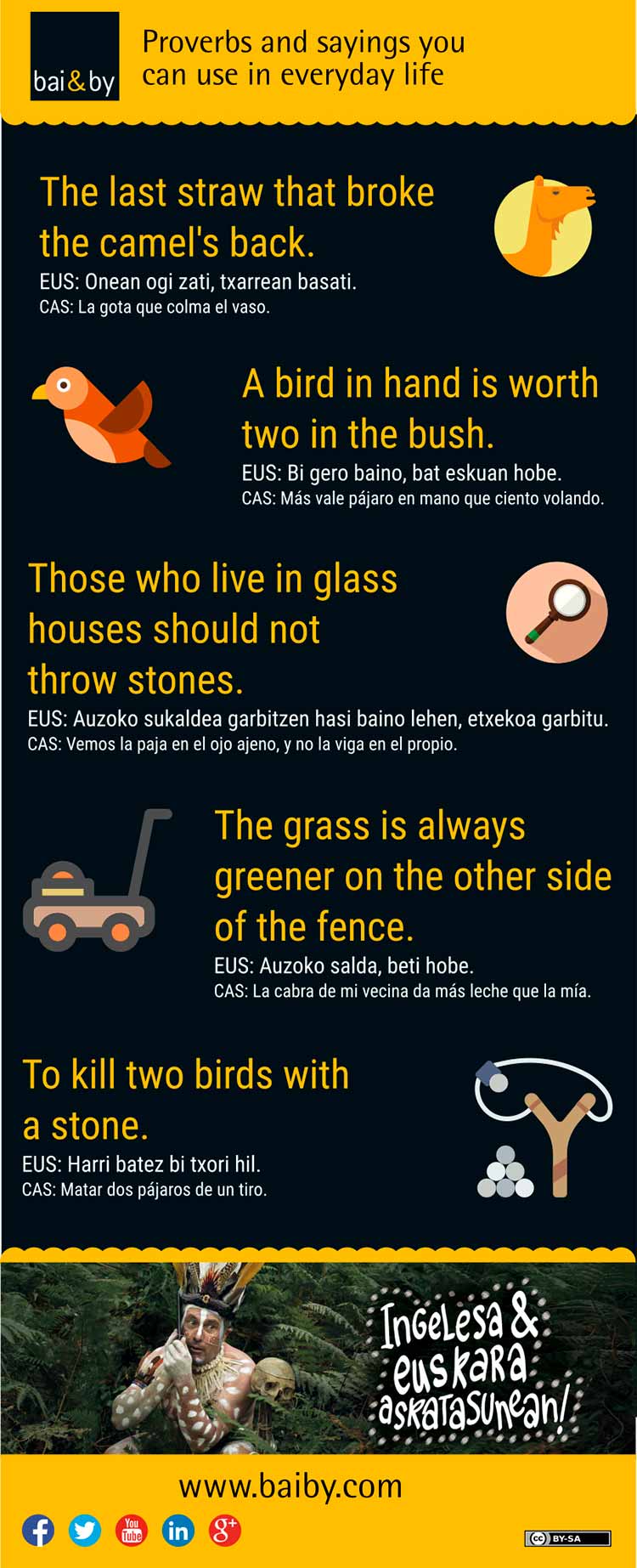2016-06-02
Study English
Share:

Sayings, proverbs and idioms are popular, straightforward and accurate sentences that form part of a long tradition of orally transmitted culture. They address moral, practical or even superstitious issues. Many times, they are metaphorical and funny. In many cases, they are anonymous and their origin is difficult to trace back.
Sayings are present in all languages and they transmit both local knowledge and social norms. Usually, apart from ideological similarities, the same proverb can be found in many countries and with very little changes. As far as Europe goes, a good example could be the latin proverbs that spread all throughout the continent in the Middle Ages.
These popular phrases are connected with everyday matters and lifestyles: home and family, the weather, animals, trades, parts of the body… Their underlying lessons and morals can be applied to many fields and situations.
Today I have brought you some widely used sayings, proverbs and idioms; learning these expressions is essential to master a language. You should learn them by heart, as you did in your mother tongue. And from now on, try to use them in your writings. That way, your texts will be richer, livelier and easier to read. It’s worth it!
| Proverb | Spanish Equivalent | Basque Equivalent | Literal translation in Spanish |
| The last straw that broke the camel’s back. | La gota que colma el vaso. | Onean ogi zati, txarrean basati. | La última paja le rompió la espalda al camello. |
| A bird in hand is worth two in the bush. | Más vale pájaro en mano que ciento volando. | Bi gero baino, bat eskuan hobe. | Un pájaro en la mano vale lo que dos en el matorral. |
| Those who live in glass houses should not throw stones. | Vemos la paja en el ojo ajeno, y no la viga en el propio. | Auzoko sukaldea garbitzen hasi baino lehen, etxekoa garbitu. | Aquellos que viven en casas de vidrio no deberían tirar piedras. |
| The grass is always greener on the other side of the fence. | La cabra de mi vecina da más leche que la mía. | Auzoko salda, beti hobe. | La hierba siempre es más verde al otro lado de la valla. |
| To kill two birds with a stone. | Matar dos pájaros de un tiro. | Harri batez bi txori hil. | Matar dos pájaros con una piedra. |
Share: